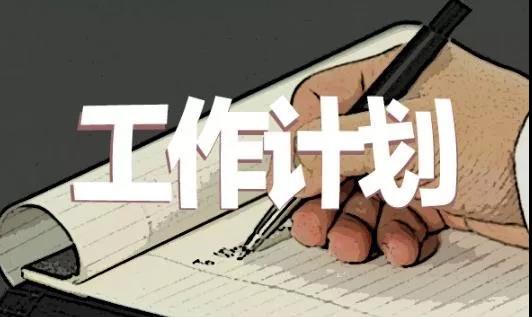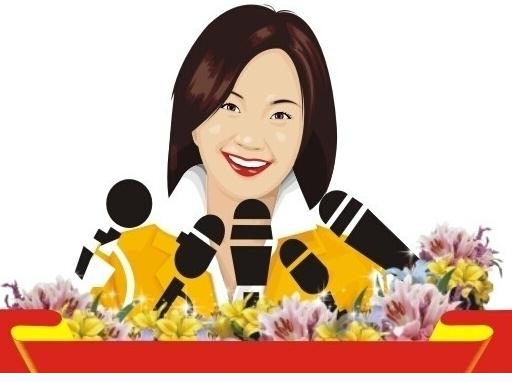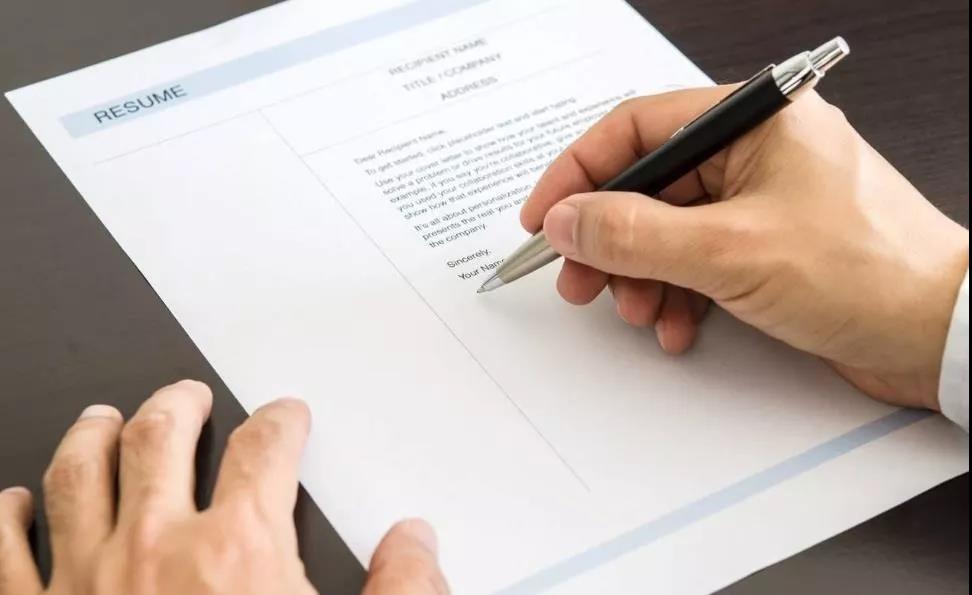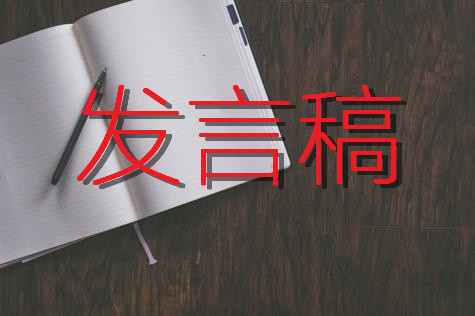2023the的用法8篇
时间:2024-02-25 08:45:02 来源:雅意学习网 本文已影响 人 
the的用法1.特指某些人或某些事物,例如:Thebookonthedeskismine.BeijingisthecapitalofChina.2.指谈话双下面是小编为大家整理的the的用法8篇,供大家参考。

the的用法篇1
1. 特指某些人或某些事物, 例如:
The book on the desk is mine.
Beijing is the capital of China.
2. 指谈话双方都知道的人或事物。例如:
Open the window, please.
Let""s meet on the road outside the school gate.
What do you think of the film?
3. 指上文提到的人或事物。例如:
I saw a boy. The boy was crying.
I have a bird. The bird is white.
I bought a coat. This is the coat.
<>4. 用于世界上独一无二的事物前面。例如:
We have friends all over the world.
Which is the biggest, the sun,the moon or the earth?
the sky ,the world
The moon goes around the earth.
5. 用于单数名词前表示一类人或事物
The horse is a useful animal.
The apple is a kind of fruit.
6. 用于序数词前
January is the first month of the year.
The first lesson is easy.
7. 用于形容词前
最高级前
Who is the tallest student here?
Winter is the coldest season of the year.
Jim""s box is the biggest of all.
表示某一类人或事物
The young should respect the old.
表示某种抽象概念
The beautiful never dies.
8. 用于某些专有名词前
江河the Yangtze River, the Suez Canal
山脉the Alps, the Tianshan Mountains
海洋the Pacific Ocean, the Yellow Sea, the Black Sea
湖泊the West Lake
群岛the Hawaiian Islands
报纸、杂志the Times, the People""s Daily
巨大建筑the Great Wall, the British Museum
朝代、时代the Stone Age, the Ming Dynasty
组织机构the United Nations
9. 用于含有普通名词的`专有名称前
the United States of America
the People’s Republic of China
the United Nations
10. 用于姓氏复数形式前,表示一家人
The Browns are kind to us.
The Kings are having dinner.
The Turners are watching TV.
11. 用在乐器的名称前
He can play the piano.
She likes to play the violin and the flute.
12. 用于逢十的复数数词前,表示年代
in the 1990""s
13. 用于某些习语
on the right, by the way, go to the cinema (theatre, concert…), in the front of , in the middle of, at the beginning, in the end, in the daytime, on the one hand…on the other hand, to tell the truth, to go to the doctor, in the morning,in the afternoon,in the evening,go to the cinema
the的用法篇2
1.表示特指的人或物
The boy in red is her brother.穿黑衣服的那个男孩是她哥哥。
I like the music of the film. 我喜欢这部电影的音乐。
2.和单数名词、形容词或者分词连用,表示一类人或事物。
the tiger老虎 the old老年人 the living生者
3.指世界上独一无二的事物
The sun is shining.阳光普照。
4.特指再次出现的人或事物。
He told us a story ,but I was not interested in the story.
他给我们讲了一个故事,但是我对这个故事不感兴趣。
5.指谈话双方都知道或心中明白的人或物
We went the station to see the friend off.我们去车站送朋友。
6.表示某一国家的人时,其前用the。
Yesterday the Singaporean came to visit our school.
昨天有新加坡人来我校参观。
7.用于表示方位的名词前
There is a beautiful park in the east of our city.
在我们的城市东面有一个美丽的公园。
8.用在江河、海洋、湖泊、群岛、山脉的名称前
the Great Wall长城
9.用在乐器名词前
play the guitar弹吉他
the的用法篇3
一、定冠词的用法。
特指双熟悉,上文已提及;
世上独无二,序数最高级;
某些专有名,习语及乐器。
以上口诀归纳了用定冠词的一般情况,即:
①特指某些人或物
②谈话双方都熟悉的人或事
③上文已经提到的人或事
④世界上独一无二的事物前
⑤序数词回形容词最高级前
⑥某些专有名词前
⑦一些习惯短语(如:in the day等)中和乐器前(如:play the violin / piano)。
二、不用冠词的集中情况。
下列情况应免冠,代词限定名词前;
专有名词不可数,学科球类三餐饭;
复数名词表泛指,两节星期月份前;
颜色语种和国名,称呼习语及头衔。
以上口诀主要概括了一般应“免冠”的几种情况,即:
①名词前已有作定语用的this、that、some、any、my等限定词。
②专有名词和不可数名词前。
③表示学科的(如:maths、Chinese、physics)名词前。
④球类活动的名词前及三餐总称前。
⑤复数名词表示泛指(一类人或事)时。
⑥节日、季节、星期、月份前。
⑦表示颜色(如:It"s red / yellow.)、语种(如:speak English/Japanese)和国家的非全称名词(如:We live in China. They come from America.)。
⑧在称呼或表示头衔的名词前。
⑨某些习惯短语中(如:in bed、go to school等)。
the的用法篇4
1、表示特指的人或物
The boy in red is her brother.穿黑衣服的那个男孩是她哥哥。
I like the music of the film. 我喜欢这部电影的音乐。
2、和单数名词、形容词或者分词连用,表示一类人或事物。
the tiger老虎 the old老年人 the living生者
3、指世界上独一无二的事物
The sun is shining.阳光普照。
4、特指再次出现的人或事物。
He told us a story ,but I was not interested in the story.
他给我们讲了一个故事,但是我对这个故事不感兴趣。
5、指谈话双方都知道或心中明白的人或物
We went the station to see the friend off.我们去车站送朋友。
6、表示某一国家的人时,其前用the。
Yesterday the Singaporean came to visit our school.
昨天有新加坡人来我校参观。
7、用在序数词、形容词最高级前
She was the first person to know that news.
她是第一个知道那个消息的人。
He is the strongest boy in our class.
他是我们班最强壮的男生。
8、在发明物的单数名词前
The washing-machine was invented by that old scientist.
洗衣机是那位年老的科学家发明的。
9、用于时间、重量等单位名称前,表示每一个单位。
The oranges sell at 2 yuan by the kilo.橘子每公斤两元钱。
They are paid by the month. 他们是按月份得到报酬的。
10、用于表示方位的名词前
There is a beautiful park in the east of our city.
在我们的城市东面有一个美丽的公园。
11、用在江河、海洋、湖泊、群岛、山脉的名称前
the Great Wall长城 the Changjiang River长江 the West Lake 西湖
12、用在乐器名词前
play the violin演奏小提琴 play the guitar弹吉他
13、用于固定的短语中
come to the point转入正题 in the distance在远处
in the morning 在上午 on the air广播 in the end最后
the的用法篇5
一、冠词概说
冠词是置于名词之前、说明名词所表示的人或事物的一种虚词。冠词是名词的一种标志!
1、定冠词the来源于this, that,用于特指和类指:
The lion is roaring. (特指)
The lion is the king of beasts. (类指)
2、不定冠词a (an) 来源于数词one,有单一的含义,用于泛指:
A tiger has escaped. (特指确定的一只老虎)
He sent me a postcard. (表示一个)
区分特指与泛指,对比下面的句子
Take a seat. (泛指)
Is the seat taken. (特指)
A gentlemen is asking to see you. (泛指)
Ask the gentlemen to come in. (特指)
二、定冠词的基本用法
1、the和个体名词的单数或复数连用,表示某个(些)特定的人或东西
Show the guest(s) to his (their) room.
Put the parcel(s) on the table.
Did you go to the opening ceremony?
凡属特指的名词都应加the, 对比以下两对句子:
Pass me the salt. VS Pass me some salt.
Here are the records I bought. VS I bought two records for you.
2、第二次提到某样东西时加the
He bought a TV and a video recorder, but he returned the video recorder.
She bought a bicycle, but when she rode it one of the wheels came off.
3、the 可以和一个单数名词一起用,表示一类人或东西
The whale is in danger of becoming extinct.
The aeroplane has made the world a small place.
The small shopkeeper is finding life increasingly difficult.
4、the 可以和某些名词连用表示整个民族或一家人
The Chinese people are industrious and brave.
The Thompsons arrived at 7 o"clock this evening.
5、the 可以和某些形容词连用,表示一类人或某种品质
In a week or two I"ll be among the unemployed.
Their aim was to discover the good, the beautiful and the true.
6、the 还可以和表示世上独一无二的东西的名词一起用
There is a rainbow in the sky.
The sun lights and warms the earth.
三、不定冠词的基本用法
不定冠词主要用在可数名词前:
1、不定冠词用在可数名词前表示”一个“(意思接近one)
Rome was not built in a day.
His wages were four hundred pounds a week.
还可用在大量表示数量的词组中:
four times a day; half a kilo;
60 km an hour; a cup of coffee
2、不定冠词用在可数名词前表示某一个
He was born in a small city in Hunan.
A scholar is coming to speak to us.
3、不定冠词用在可数名词前表示某类人或物(可用在表语、同位语中)
She is a Canadian (dancer)。 (表语)
The book was written by Dr. Cooper, a geneticist. (同位语)
4、不定冠词用在可数名词前表示某类人或物(可作主语,表示这类人或东西)
A child needs love.
A rattlesnake is a poisonous American snake.
当然这两个句子,这么写也是对的:
Children need love.
Rattlesnakes are poisonous American snakes.
四、零冠词,即不用冠词的现象
1、表示疾病: cancer, influenza等
2、一日三餐:breakfast, lunch, supper, dinner
3、一年四季,月份, 星期: spring, January, Monday等
If winter comes, can spring be far behind?
4、抽象意义的名词:
watch TV; go to bed; go to school;
go to church; go to hospital; go to college等
5、物质名词
oxygen, gold, tea, coffee, space等
Gold will not buy anything.
6、独一无二的职位名称前,可以省略冠词
author, chairman, director, king, prime minister, queen等
7、名词之前有no,或者所有格名词
No man is an island.
It"s the artist"s job to create sunshine when there isn"t any.
8、介词by之后的交通或通讯方式
go by train, travel by air
call by phone, contact by e-mail
9、表示游戏或球类运动的名词
play bridge (chess, basketball, football等)
10、表示”人类“的词
man, mankind, humanity, 但the human beings除外
11、西方的节日名称
Christmas, Easter, New Year"s Day, Thanksgiving Day等
12、公园名称
Hyde Park (海德公园) Central Park
13、两个名词作为一个整体并列使用时,后者不用冠词
Action is the food and drink which will nourish our success.
the的用法篇6
定冠词the与指示代词this,that同源,有“那(这)个”的意思,但较弱,可以和一个名词连用,来表示某个或某些特定的人或东西。
1)特指双方都明白的人或物:
Take the medicine. 把药吃了。
2)上文提到过的人或事:
He bought a house. I"ve been to the house.
他买了幢房子。我去过那幢房子。
3)指世上独一物二的事物:
the sun, the sky, the moon, the earth
4)单数名词连用表示一类事物,如:
the dollar 美元; the fox 狐狸;或与形容词或分词连用,表示一类人:the rich 富人; the living 生者。
5)用在序数词和形容词最高级,及形容词only, very, same等前面:
Where do you live? I live on the second floor.
你住在哪?我住在二层。
That"s the very thing I"ve been looking for.
那正是我要找的东西。
6)与复数名词连用,指整个群体:
They are the teachers of this school. (指全体教师)
They are teachers of this school. (指部分教师)
7)表示所有,相当于物主代词,用在表示身体部位的名词前:
She caught me by the arm. 她抓住了我的手臂。
8)用在某些由普通名词构成的国家名称、机关团体、阶级、等专有名词前:
the People"s Republic of China 中华人民共和国
the United States 美国
9)用在表示乐器的名词之前: She plays the piano. 她会弹钢琴。
10) 用在姓氏的复数名词之前,表示一家人: the Greens 格林一家人 (或格林夫妇)
11) 用在惯用语中:
in the day, in the morning (afternoon,evening), the day after tomorrow, the day before yesterday, the next morning, in the sky (water, field, country), in the dark, in the rain, in the distance, in the middle (of), in the end, on the whole, by the way, go to the theatre
the的用法篇7
art. 指已提到或易领会到的人或事物; 指独一无二的、正常的或不言而喻的人或事物; 解说时用;
用在由普通名词和另外一些词构成的国家名称、机关团体、阶级、等专有名词前
the的短语例句
例:the Great Wall 长城
the United Nations 联合国
the New York Times 《纽约时报》
the United States of America 美国
the Red Cross Hospital 红十字医院the Olympic Games 奥林匹克运动会
the Shanghai Railway Station 上海火车站
the People"s Republic of China 中华人民共和国
the North Pole 北极
the People"s Daily 《人民日报》
12 用在某些形容词前,表示一类人或物或某种抽象概念
例:the old 老年人
the happy 幸福的人
the poor 穷人
the aged 老人
the sick 病人
the impossible 不可能的事the young 年轻人
the rich 富人
the blind 盲人
the wounded 伤员
the smooth 顺事
the beautiful 美,美的东西
例:The rich should help the poor. 富人应该帮助穷人。
The good is what people like. 人们总是喜欢美好的东西。
The wounded have been sent to the hospital. 伤员已经被送到医院去了。
13 用在姓氏的复数形式前,表示全家人或这一姓的夫妇二人
例:The Greens will more to the country. 格林一家要搬到乡下去。
The Wangs came to see us yesterday. 王家一家人昨天来看我们。
The Browns are very friendly. 布朗夫妇都很友好。
14 用在表示计算单位的名词前,含有“每,每一”的意思
例:Jim is paid by the hour. 吉姆的工资按小时付。
Eggs are sold by the kilogram. 鸡蛋按千克出售。
This cloth is sold by the yard. 这种布按码出售。
It sells at three dollars the pound. 它以每磅三美元出售。
They sell sugar by the pound. 他们按磅卖糖。
15 用在前面已提到过的人的身体部位或衣着的名词前
这种用法是先把整个对象说出来,然后再说到那个对象的身体的局部或衣着。
结构:动词(hit, pull, pat, strike, catch, hold, take)+sb.+介词(in, on, by, across)+身体部位或衣着
例:She touched him on the shoulder. 她碰了碰他的肩。
He took the girl by the hand. 他拉着小女孩的手。
He hit her on the nose. 他打了她的鼻子。
The stone struck the man in the eye. 石头击中了那人的眼睛。
I caught her by the right hand. 我抓住她的右手。
比较:她拍了拍那男孩的头。
She patted the boy on his head. (误,本结构中身体部位或衣着前不用one"s)
She patted the boy on the head. (正)
16 用在逢十的复数数词前,表示年代,也指人的大约岁数
例:The war broke out in the forties. 那场战争发生在40年代。
He went abroad in the 1980s. 他在20世纪80年代出国的。
The old man is in the seventies. 老人大约七十几岁。
17 用在表示自然现象的名词前
这类名词有:
the rain 雨,the wind风, the fog雾,the snow雪, the air空气, the storm风暴,the snowstorm 暴风雪
例:Don"t stand in the rain. 不要站在雨中。
The wind blew down the trees. 风把树刮倒了。
The ship sank in the storm. 船在风暴中沉没了。
The rain has cleaned the air. 下雨净洁了空气。
The fog was so thick that we couldn"t see the top of the hill. 雾很大,我们看不见山顶。
提示
a 这类名词前有形容词修饰时,可用不定冠词,表示“一场,一阵,一种”
例:A cold wind is blowing from the north. 冷风从北方吹来。
There was a heavy rain last night. 昨晚下了一场大雨。
A heavy snow is falling outside. 外面正下着大雪。
b 这类名词表示一般物质时,不用冠词。
例:Rain falls in summer; snow falls in winter. 夏天下雨,冬天下雪。
Man can"t live without air. 没有空气人不能活。
18 与复数名词连用,指整个群体
例: They are the teachers of this school.指全体教师)
They are teachers of this school.(指部分教师)
19 表示所有,相当于物主代词,用在表示身体部位的名词前
She caught me by the arm…… 她抓住了我的手臂。
20 用在某些习惯用语中
例:
in the morning 在上午
in the evening 在晚上
in the field 在田野里
in the country 在乡间
in the sun 在阳光下
in the distance 在远处
on the right 在右边
by the way 顺便说一下
in the front of 在前部
in the daytime 白天
go to the concert 去听音乐会
at (/in) the beginning 开始
at the moment 当时,此刻
all the year round 一年到头
go to the cinema 去看电影
go to the theatre 去看戏
at the weekend 周末in the afternoon 在下午
in the night 在夜里
in the sky 在空中
in the dark 在暗处
in the rain 在雨中
in the shade 在阴凉处
on the left 在左边
all the time 始终
in the middle of 在中间
on the way home 回家途中
all the same 依然
on the whole 总之
at the same time 同时
on the plane 在飞机上
in the year 2008 在2008年
the other day 前几天
at the bottom of 在……底部
in the end 终于
on the one hand, on the other hand 一方面,另一方面
下面几个短语前不加定冠词:
例:at dawn 在黎明
at night 在晚上
at noon 在正午
the的用法篇8
定冠词the与指示代词this,that同源,有“那(这)个”的意思,但较弱,可以和一个名词连用,来表示某个或某些特定的人或东西。
1)特指双方都明白的人或物:
Take the medicine. 把药吃了。
2)上文提到过的人或事:
He bought a house. I"ve been to the house.
他买了幢房子。我去过那幢房子。
3)指世上独一物二的事物:
the sun, the sky, the moon, the earth
4)单数名词连用表示一类事物,如:
the dollar 美元; the fox 狐狸;或与形容词或分词连用,表示一类人:the rich 富人; the living 生者。
5)用在序数词和形容词最高级,及形容词only, very, same等前面:
Where do you live? I live on the second floor.
你住在哪?我住在二层。
That"s the very thing I"ve been looking for.
那正是我要找的东西。
6)与复数名词连用,指整个群体:
They are the teachers of this school. (指全体教师)
They are teachers of this school. (指部分教师)
7)表示所有,相当于物主代词,用在表示身体部位的名词前:
She caught me by the arm. 她抓住了我的手臂。
8)用在某些由普通名词构成的国家名称、机关团体、阶级、等专有名词前:
the People"s Republic of China 中华人民共和国
the United States 美国
9)用在表示乐器的名词之前: She plays the piano. 她会弹钢琴。
10) 用在姓氏的复数名词之前,表示一家人: the Greens 格林一家人 (或格林夫妇)
11) 用在惯用语中:
in the day, in the morning (afternoon,evening), the day after tomorrow, the day before yesterday, the next morning, in the sky (water, field, country), in the dark, in the rain, in the distance, in the middle (of), in the end, on the whole, by the way, go to the theatre
推荐访问:用法 the的用法最简口诀 the的用法归纳 the的用法最简口诀12个字 the的用法区别 the的用法归纳总结小学 the的用法举例 the的用法和例句 the的两种读音及用法 定冠词the的用法 英语the的用法










